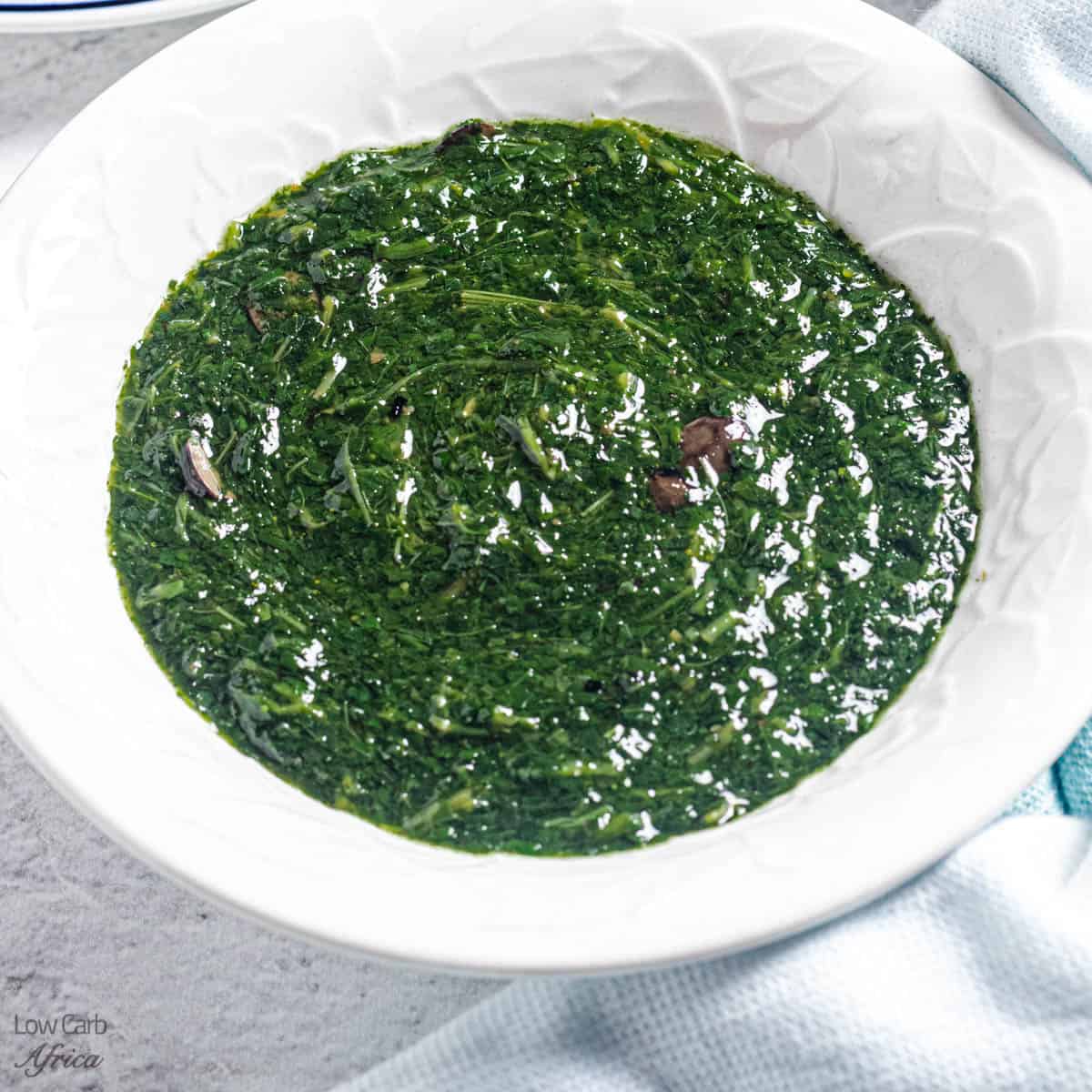Ewedu Soup Recipe: Two Easy Methods

Ewedu, also known as molokhia or jute leaves, is a popular Nigerian soup that goes well with Nigerian stews like buka stew or gbegiri. The soup is commonly accompanied by fufu, garri, or amala. Because of its viscosity, Ewedu soup is similar to okra soup, but it is primarily consumed by the Yoruba tribe of Nigeria.
Learn how to make this Yoruba classic soup using fresh or frozen jute leaves, as well as how to store it.
What Exactly Is Ewedu Soup?
Ewedu soup is a savory soup popular among Nigeria’s Yoruba tribe. It is made from Jute leaves, a highly nutritious leafy green plant consumed in countries all over the world.
When cooked, Ewedu has a mucilaginous (slimy) texture similar to Egyptian molokhia or okra soup, making it an ideal dish to pair with fufu. Ewedu soup is almost always served with Nigerian beef or fish stew.
What Are Jute leaves
This is the primary ingredient in Ewedu soup. It is well-known throughout Africa, Asia, the Middle East, and the Caribbean. Unfortunately, fresh jute leaves are nearly impossible to find in the United States, but most African, Asian, and Middle Eastern grocery stores sell the frozen version, which tastes just as good!
Ingredients
- Frozen Ewedu
- Grounded Crayfish ground
- Egusi (ground melon seed). This one is optional.
- Iru (locust beans)If you are reading this in Nigeria, you may have access to iru Pete, which is traditionally added to the soup.
- Salt
- Bouillon granules
- Big Mama’s Chicken Flavour Maggi
Equipment Required
- A medium-sized pot
- Ladle or hand-held whisk
- Mixing bowl
Prep
- If you’re using iru woro, rinse the locust beans.
- To make a paste, add 1 tablespoon of water to the ground melon. After that, set aside
How To Prepare Fresh Ewedu Soup

If using fresh jute leaves, separate the leaves from the stem. Transfer to a blender after rinsing to remove sand.
Blend in a small amount of water until the texture is coarse, or puree if you prefer. To blend 4 to 5 cups of tightly packed Ewedu, add about 1 cup of water; too much water will prevent the vegetable from drawing.
Place the blended vegetables in a saucepan over low to medium heat. Cook for about 2 minutes after adding the melon paste in bits.
Stir the soup and break the melon chunks into it with the back of a spoon. Stir in the ground crayfish, salt, and bouillon powder.
Cook for another 3 minutes, then taste and adjust the seasoning.
Cooking Frozen Ewedu Soup
Defrost the frozen molokhia as follows:
To accomplish this, use your microwave’s defrost function or soak the frozen vegetable in warm water while still in the bag. Another method for defrosting frozen jute leaves is to place them in the refrigerator overnight.
Cook:
Place a pan over low-medium heat, add 34 cup of water, and bring to a gentle boil for about a minute (this assumes you’ll be cooking 400g of frozen jute leaves), then add the melon paste in bits, followed by the washed locust beans.
Stir infrequently because you want the melon to solidify slightly. Cook for 2 minutes on medium heat, then stir to combine, breaking up the egusi lumps with the back of a spoon.
Pour in the thawed Ewedu and stir to combine. Stir in the ground crayfish, salt, and bouillon powder and return to a gentle boil for 3 minutes. Taste and adjust the seasoning to your liking.
Remove from the heat immediately and serve with your favorite Nigerian soup.
Storing And Reheating
Ewedu soup can be refrigerated for up to 5 days, but it can also be frozen for much longer. You can reheat it in the microwave or on the stove.
If it is frozen, bring it out the night before and let it thaw overnight in the refrigerator.
How To Serve
Ewedu is traditionally served with soups such as beef stew, chicken stew, fish stew, or buka stew, and a swallow of choice. You can serve it with fufu, eba, or amala, which are all popular swallows.
For an abula experience, serve this green soup with gbegiri.
Frequently Asked Questions
Where can I purchase jute leaves?
Ewedu is widely available in Nigerian markets. If you live in the diaspora, you should look in African or Asian stores. Fresh leaves may not be readily available depending on where you live, but most stores will stock frozen ones labeled molokhia.
Can I prepare this ahead of time?
You certainly can. Cooked Ewedu can be kept in the refrigerator for up to three days.
